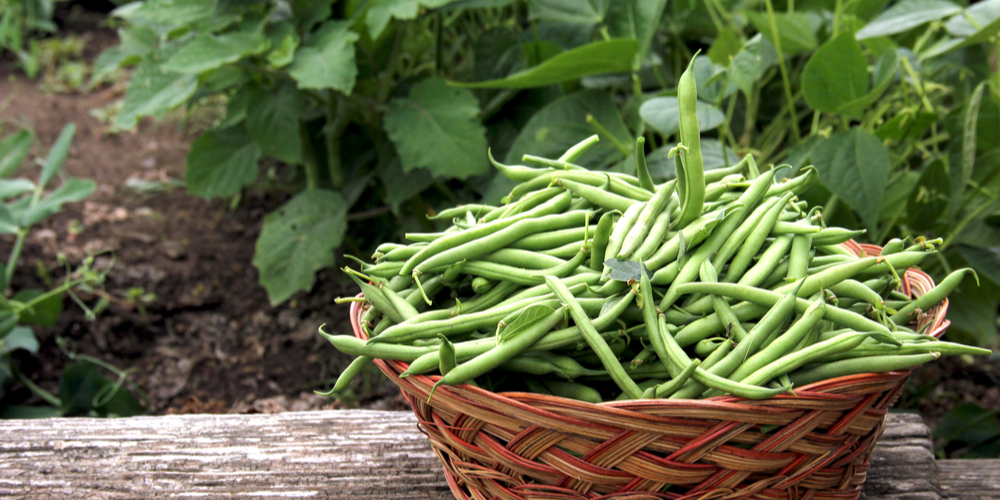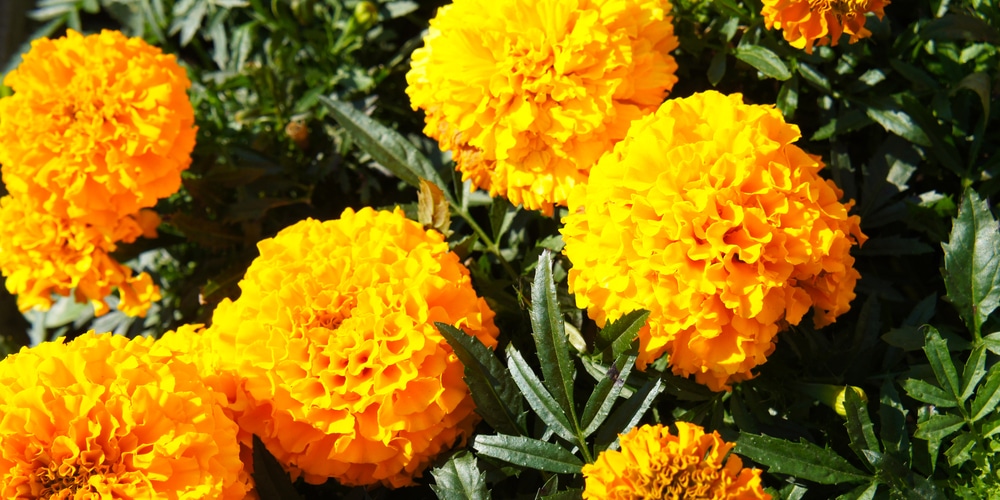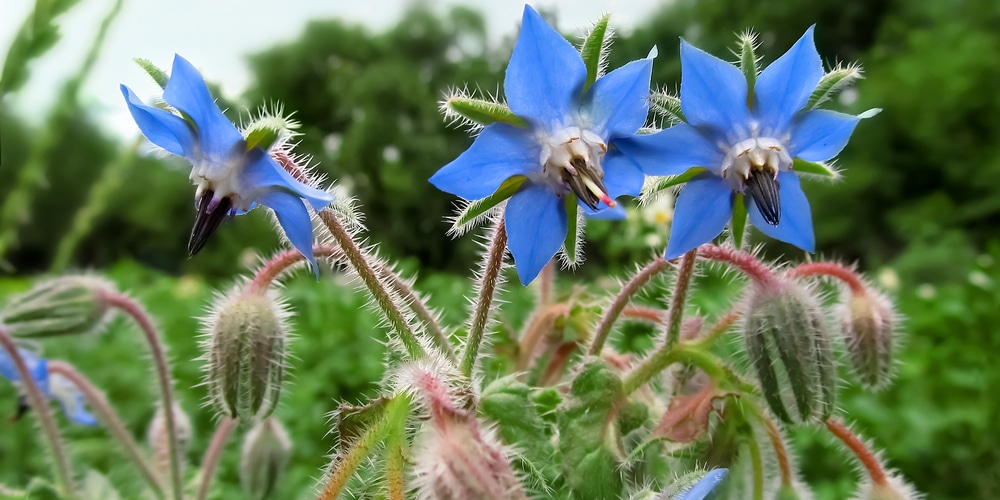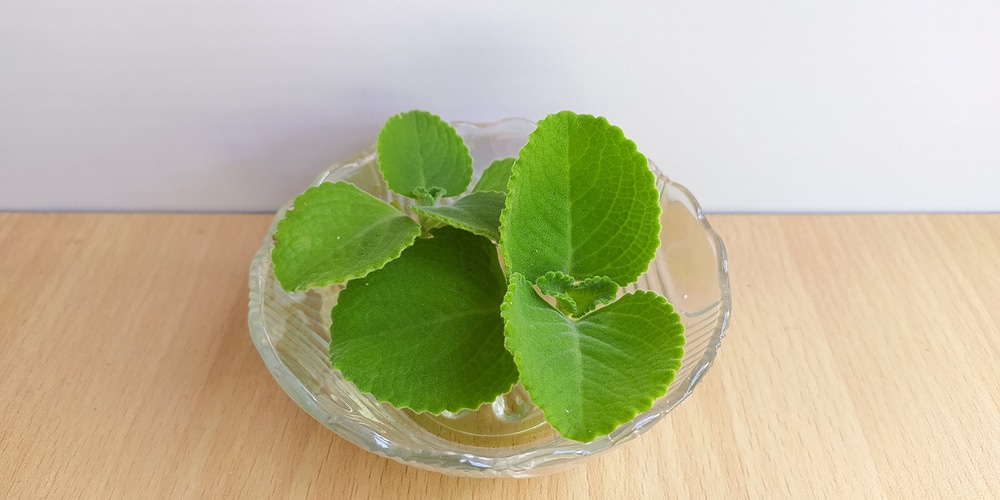Eggplants tend to do well on their own, but it doesn’t hurt to have companion plants that can make your aubergine grow faster, improve soil nutrients and make the vegetable taste better. Plant them right next to these 7 eggplant companion plants and watch as they thrive together.
Eggplant companion plants
Here are the best eggplant companion plants:
Legumes

Legumes, particularly the beans and lentil family, are good to have in an eggplant garden. Eggplants are notorious for being nitrogen-hungry plants, and beans can supply that much-needed nutrient alongside regular fertilization.
Bush beans and pole beans can be planted right next to your eggplants to enrich the soil and keep away Colorado potato beetles. Peas and lentil plants can also work in a pinch and offer the same benefit as planting beans.
Marigolds
All vegetable plants can benefit from having a marigold or two around, regardless of species. You can plant an African or French variety around your eggplants and they will protect them against most pests and insects.
Their beautiful colored blooms attract pollinators to your yard so you get more fruit and buds. Marigolds are true eggplant companion plants since they don’t require much to thrive, add natural color to the landscape, and can grow quickly on their own.
Marigolds prefer to stay in a sunny spot but are quite forgiving when it comes to watering and fertilization. Less is actually more for these sun-loving plants. It’s worth noting that beans and marigolds do not mix well, so you’ll have to choose only one as your companion plant.
Chamomile

Eggplants grown in a home garden are more likely to taste better than most store-bought varieties, but if you want to make yours taste better then you can plant chamomile right beside your eggplants.
Chamomile releases certain chemicals that spur vegetables such as eggplants to grow faster and produce tastier fruit. You’ll be able to harvest more plentiful vegetables sooner with these around. The good news is that chamomile isn’t a fussy plant and thrives best in partial shade, as well as infrequent watering.
Summer savory, marjoram, and similar plant species also offer the same benefits.
Kohlrabi
Kohlrabi is also known as German turnip and is a low-growing vegetable plant that matures in about 50 to 60 days. It’s an excellent companion plant for eggplants, but it shouldn’t be put near tomatoes, pole beans, and peppers.
The cruciferous vegetable is the same as broccoli, cabbage, and collard greens and is a vigorous grower. You can harvest them and enjoy the fruits of your labor while waiting for your eggplants to mature.
Oregano
Herbs such as oregano produce a strong scent, which incidentally has a use in your eggplant garden. As a bonus, it’s very easy to care for the plant and they tend to do better when forgotten now and then.
The drought-tolerant species needs less water when fully established and comes back every year. Fertilization is a matter of choice and whether or not you have the time or resources for it. Come harvest time, you can cook your eggplants and add oregano to the mix for added flavor, depth, and texture.
You may also plant rosemary, sage, and lavender as alternatives.
Borage
Another annual herb (but this time it’s a flowering species), Borage has several characteristics that make it an excellent companion plant for eggplant. Its seed oil can be used for medicinal purposes, while the plant’s purple flowers stand out from the crown once in full bloom.
Borage, or Starflower, is fast-growing, and its flowers carry the scent of cucumbers. More importantly, the plant deters worms from getting near your vegetables and attracts pollinators at the same time.
Mint Plants
Spearmint and peppermint are just a few examples of eggplant-loving mint plants you can grow in your vegetable patch. They’re non-fussy and thrive in neglect. However, you’ll want to keep an eye out for them because they may get unruly and overtake your vegetable garden.
Mint plants produce oils that deter flea beetles and similar pests that can prove to be a problem with eggplants. Other than that, they will be fine with full sun or partial sun and even in rocky or nutritionally-poor soil medium. Fertilization is good but not needed, and they will need to be pruned now and then.



